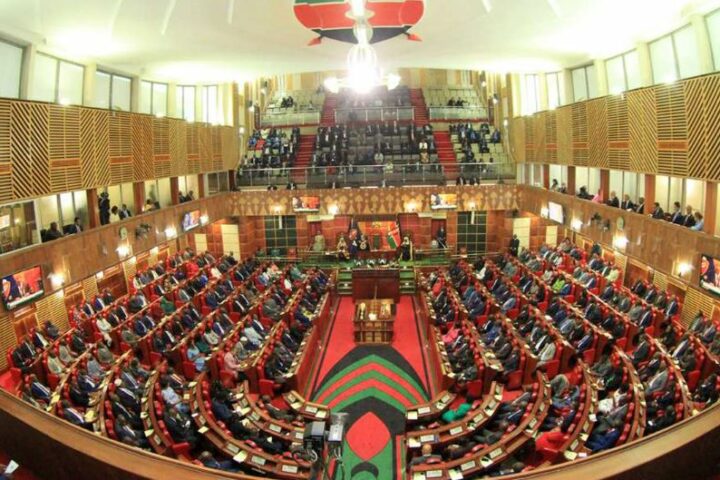Gambling is a popular and rapidly growing industry in East Africa, with countries like Kenya, Uganda, and Tanzania seeing significant increases in participation, particularly in online gambling.
In recent years, Kenya has emerged as one of the largest and most prominent markets for gambling in the region.
With the proliferation of mobile technology and internet penetration, gambling, especially sports betting available in $10 deposit online casino sites, has become increasingly accessible to a broader population.
Kenya’s gambling industry is regulated under the Betting, Lotteries, and Gaming Act (1966), which has undergone several amendments to adapt to the evolving gambling environment.
Although this law was originally designed to regulate traditional forms of gambling, such as casinos and lotteries, it has since expanded to cover online gambling, betting shops, and mobile-based platforms.
Kenya’s regulatory framework is often considered one of the most comprehensive in East Africa, which is partly why it has attracted significant investments from international gambling companies.
In East Africa, gambling regulation varies widely across countries. Uganda and Tanzania, for instance, have their own laws, with Uganda enforcing strict controls and Tanzania being relatively more lenient.
However, Kenya’s regulatory environment stands out for its more established and dynamic framework, which provides both opportunities and challenges for operators and consumers alike.
Recent developments
In recent years, the Kenyan government has introduced a series of legal reforms aimed at better regulating the rapidly growing online gambling market.
One of the most notable changes was the 2019 tax amendment that introduced higher taxation on both operators and players.
Operators are subject to a 15% tax on gross gaming revenue, while players face a 20% withholding tax on winnings. These changes have significantly impacted the profitability of online casinos and betting platforms in the country.
Another significant development occurred in 2021 when the government tightened its stance on gambling advertising.
The Communications Authority of Kenya (CAK) enforced stricter guidelines, limiting the times during which gambling ads could be aired on TV and radio, as well as imposing restrictions on promotional content targeting young people.
These measures were aimed at curbing the rising concerns around gambling addiction and the negative social impacts of unregulated advertising.
Moreover, recent proposals for new legislation are under consideration to further modernise the regulatory environment.
The Gaming Bill of 2021 seeks to replace the outdated Betting, Lotteries, and Gaming Act with a more comprehensive framework that addresses emerging trends, such as online casinos, virtual betting, and cryptocurrency-based gambling.
If passed, this legislation will provide clearer guidelines for operators, strengthen consumer protections, and ensure more effective enforcement of tax collection.
These developments highlight Kenya’s ongoing efforts to adapt its legal infrastructure to keep pace with the fast-evolving nature of online gambling.
Regulation, taxation, and consumer protection
The Kenyan government plays a pivotal role in regulating the gambling industry through several key institutions.
The Betting Control and Licensing Board (BCLB) is responsible for issuing licenses to operators and ensuring compliance with the law. The board also monitors gambling activities to safeguard consumers from fraud and unfair practices.
As part of its regulatory mandate, the BCLB sets operational standards for online casinos and betting companies, including stringent anti-money laundering measures.
Taxation is another critical area where the government exerts significant control over the gambling sector.
The Kenyan tax regime, which includes both corporate and individual taxes on gambling, serves not only as a revenue generator for the government but also as a deterrent against excessive gambling.
For operators, the high tax rates introduced in 2019 pose a challenge to profitability, often leading to complaints about the unsustainable financial burden.
Some companies have even exited the Kenyan market due to these fiscal pressures, leaving fewer options for players.
Consumer protection remains a key focus of the government’s regulatory efforts.
The introduction of the National Integrated Identity Management System (NIIMS) has helped the government in tracking and identifying players, thus enforcing age restrictions and limiting the number of underage gamblers.
Additionally, Kenya has introduced self-exclusion programs, which allow players to voluntarily ban themselves from accessing gambling services if they feel they are at risk of addiction.
Consumer protection strategies
- Age verification: Ensures that minors are not allowed to gamble.
- Self-exclusion programs: Provide a way for individuals to limit their access to gambling platforms.
- Responsible gambling awareness: Educates the public on the risks of gambling addiction and promotes responsible behaviour.
Overall, the government’s regulatory role encompasses both ensuring that gambling operators conduct their business fairly and responsibly and protecting consumers from the social and financial risks associated with gambling.
How regulations shape the online gambling market
The introduction of stricter regulations has had a profound impact on Kenya’s gambling industry.
For one, the higher tax burdens have caused a wave of consolidation among local operators. Many smaller betting firms have struggled to remain profitable under the new tax regime, forcing them either to merge with larger firms or exit the market altogether.
This has led to a more concentrated market dominated by a few major players, particularly in the online sports betting sector.
For international operators, Kenya remains an attractive market despite the regulatory challenges due to its high internet penetration and widespread use of mobile money platforms like M-Pesa, which facilitate easy and secure transactions for players.
However, compliance with Kenyan laws, particularly around advertising and responsible gambling, has become increasingly critical for these companies to avoid penalties and license revocations.
The crackdown on unlicensed operators has also had a positive impact on the industry, creating a more level playing field for compliant businesses.
Legitimate operators now have more assurance that their competitors are adhering to the same rules, which fosters a healthier competitive environment.
Additionally, the increased emphasis on responsible gambling has enhanced the industry’s reputation, as it shows that both operators and regulators are committed to mitigating the potential harms of gambling.
Predictions for regulatory changes
Looking ahead, it is likely that Kenya’s gambling regulations will continue to evolve, especially as new technologies and forms of gambling emerge. The Gaming Bill is expected to modernise the country’s regulatory framework and provide clearer guidelines for both operators and consumers.
This bill aims to introduce new measures around cryptocurrency and eSports betting, which are growing in popularity but currently operate in a legal grey area.
Moreover, the government is likely to refine its taxation policies further, potentially adjusting the high tax rates that have driven some operators out of the market.
There is also speculation that Kenya may follow in the footsteps of countries like the UK by introducing stricter measures to combat gambling addiction, such as more rigorous advertising restrictions and mandatory affordability checks for players.
In the broader East African context, Kenya’s regulatory model could serve as a blueprint for neighbouring countries that are still developing their own gambling laws.
Uganda, for instance, has already expressed interest in adopting similar measures to curb unlicensed operators and ensure better consumer protection.
In conclusion, Kenya’s gambling landscape is undergoing significant transformation, driven by both technological advancements and legislative reforms.
As regulations continue to adapt, the country is likely to maintain its position as one of the leading gambling markets in East Africa, with a strong focus on consumer protection and industry sustainability.










